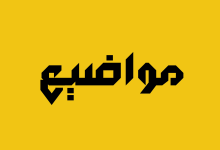“Mortgaging The Earth: The World Bank, Environmental Impoverishment, and the Crisis of Development” by Bruce Rich is an insightful and critical exploration of the World Bank’s role in international development. Authored by Bruce Rich, a renowned expert on environmental issues and the World Bank, this book delves into the profound impact the World Bank has on over 110 borrowing countries, shaping their economic, environmental, and political landscapes.
The narrative unfolds as Rich examines the World Bank’s trajectory, portraying it as a formidable and at times, destructive force. One of the central themes is the examination of Bank-funded projects worldwide, such as massive dams leading to the displacement of millions of impoverished individuals, and ambitious infrastructure projects in Brazil, Indonesia, and Africa that have resulted in deforestation and social conflict. Rich paints a vivid picture of the repercussions of these projects, shedding light on their environmental and human rights consequences.
The author also exposes confidential internal documents, revealing chronic misrepresentations by the Bank’s management to both donor nations and the public. Despite protests from Bank staff, senior officials persist in supporting projects with detrimental ecological and human rights outcomes. Rich skillfully narrates how the Bank has, without political accountability, increased its backing for regimes engaged in human rights abuses.
The book traces the World Bank’s history, from its establishment at Bretton Woods, where it was conceived to provide reconstruction loans for war-torn Europe, through the tenure of Robert McNamara to the Rio de Janeiro Earth Summit. At Rio, significant financial contributions were made to the Bank to address global environmental concerns, yet the Bank continued to finance projects leading to ecological disasters.
“Mortgaging the Earth” places the World Bank within the broader context of the history of development, referencing thinkers from Descartes to Max Weber to Chico Mendes. Rich contends that the Bank reflects the goals of the modern age, which, despite their global triumph, have become problematic. The book emphasizes the Bank’s role as a crucible for the contemporary global politics of technology, development, and the environment.
The narrative unfolds against the backdrop of the Bank’s fifty-year history, highlighting the institutional dynamic of the so-called pressure to lend. Rich contends that this dynamic has taken on a damaging life of its own, contributing to the Bank’s dilemmas mirroring the broader crisis of values in global civilization.
Published by Beacon Press in February 1994, “Mortgaging The Earth” is a thought-provoking and provocative analysis that underscores the need for reform within the World Bank. It provides a comprehensive view of the institution’s challenges and offers expert prescriptions for addressing them. Rich’s work makes a compelling case for why every individual, particularly Americans, should be concerned about the World Bank and its pivotal role in shaping the intertwined dynamics of technology, development, and the environment on a global scale. The stakes are high, and the book serves as a wake-up call to the critical issues at hand.
